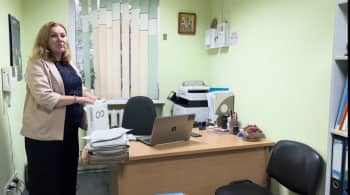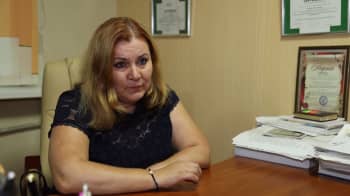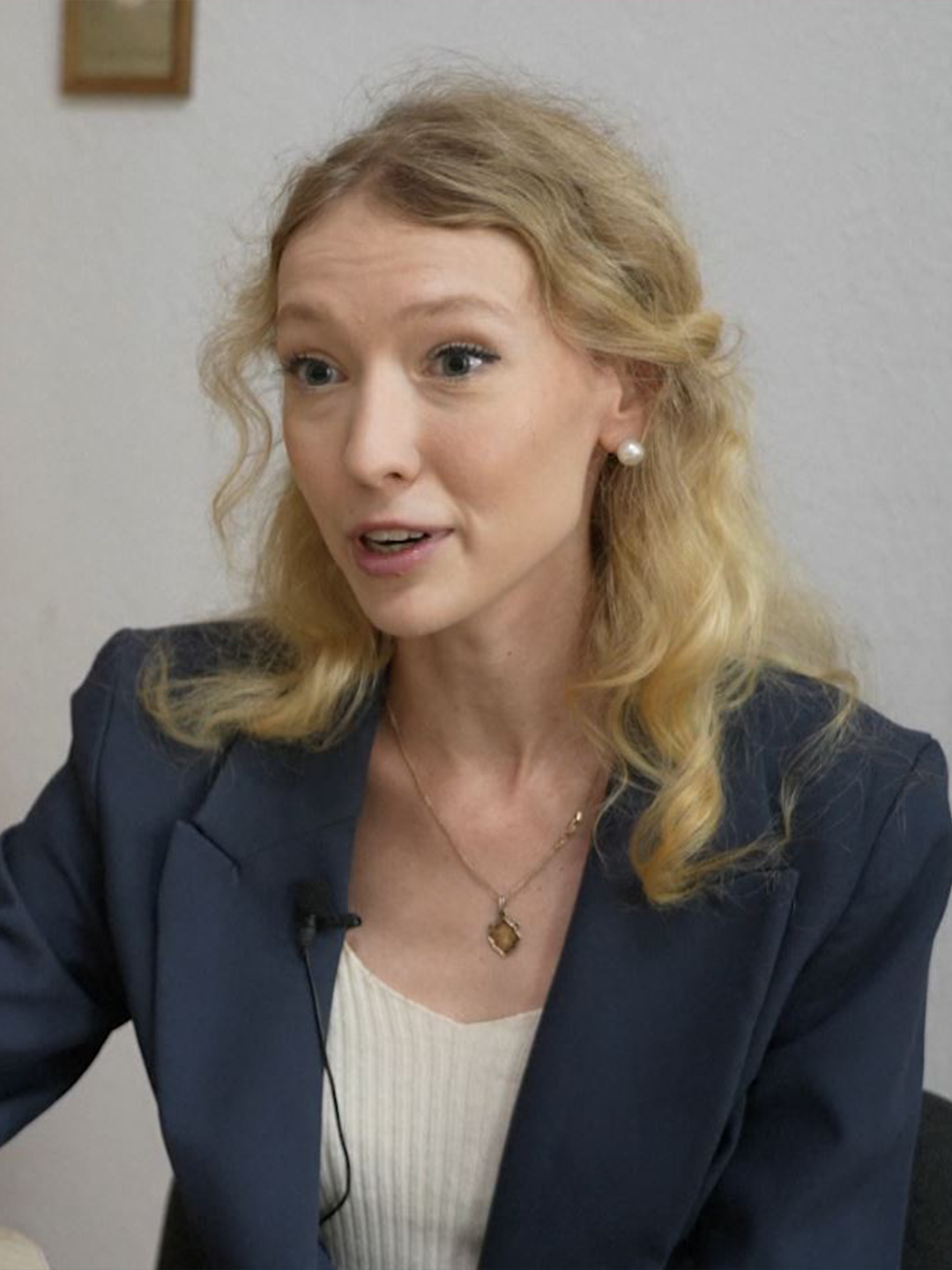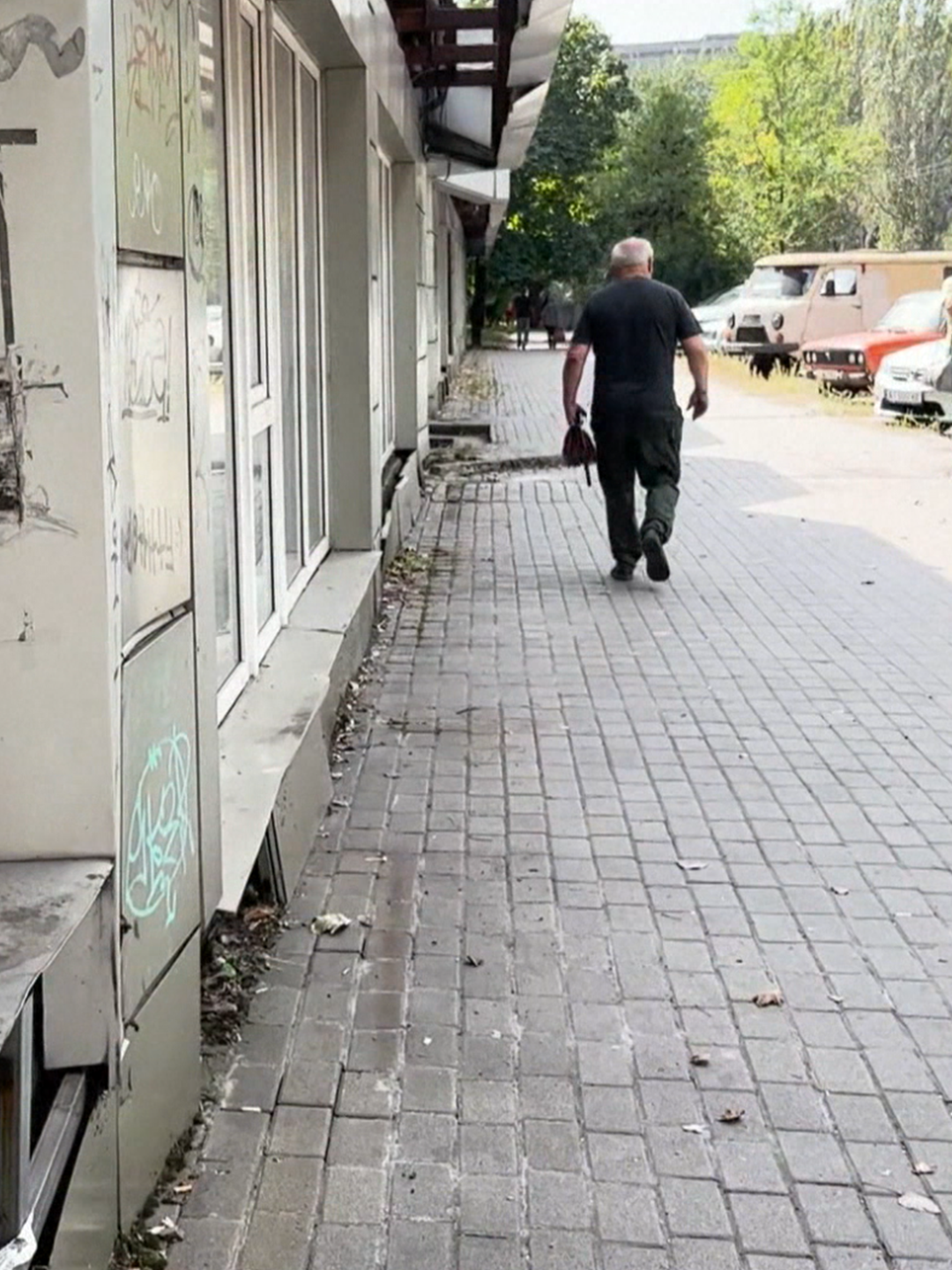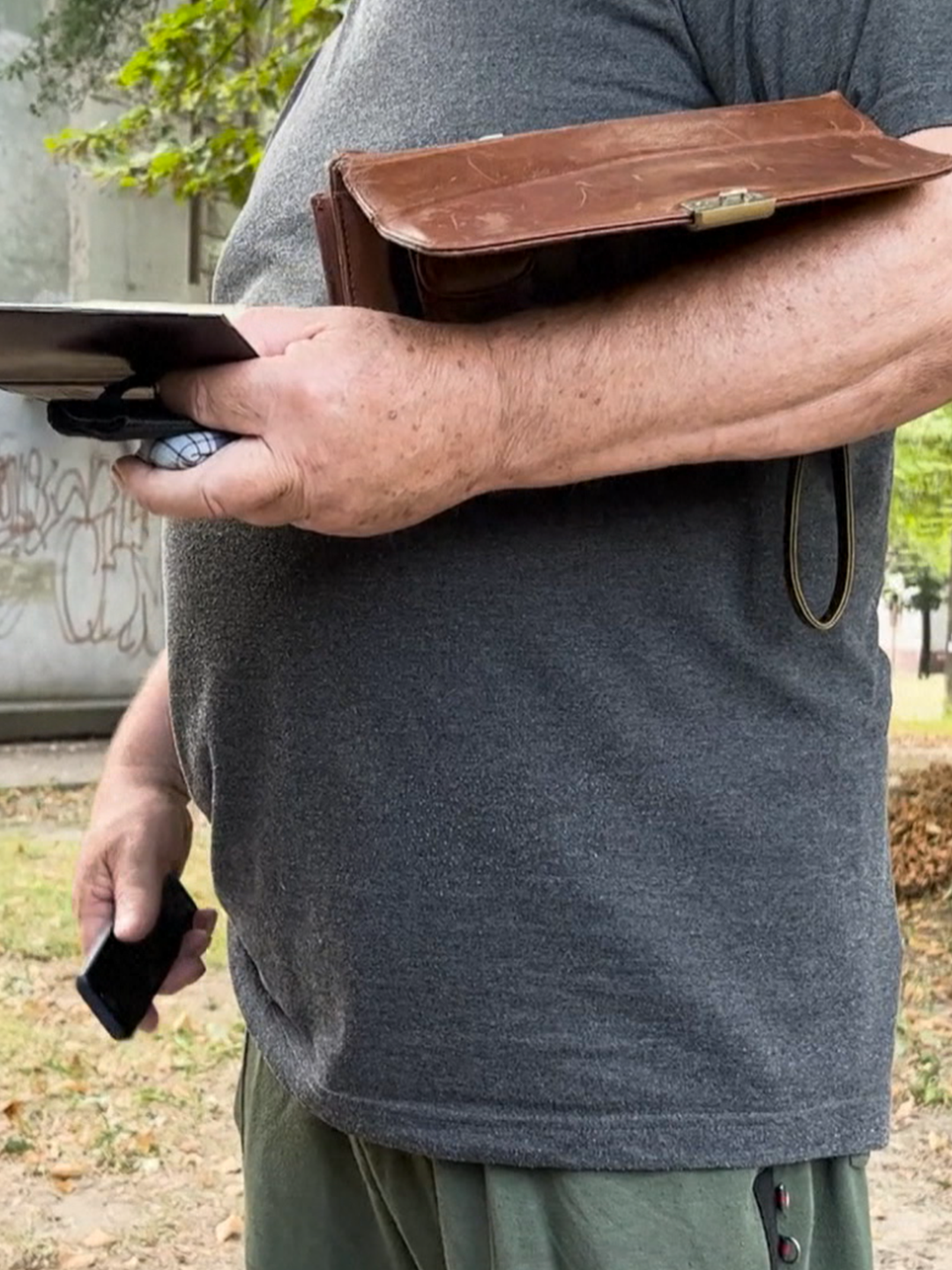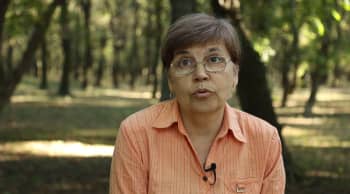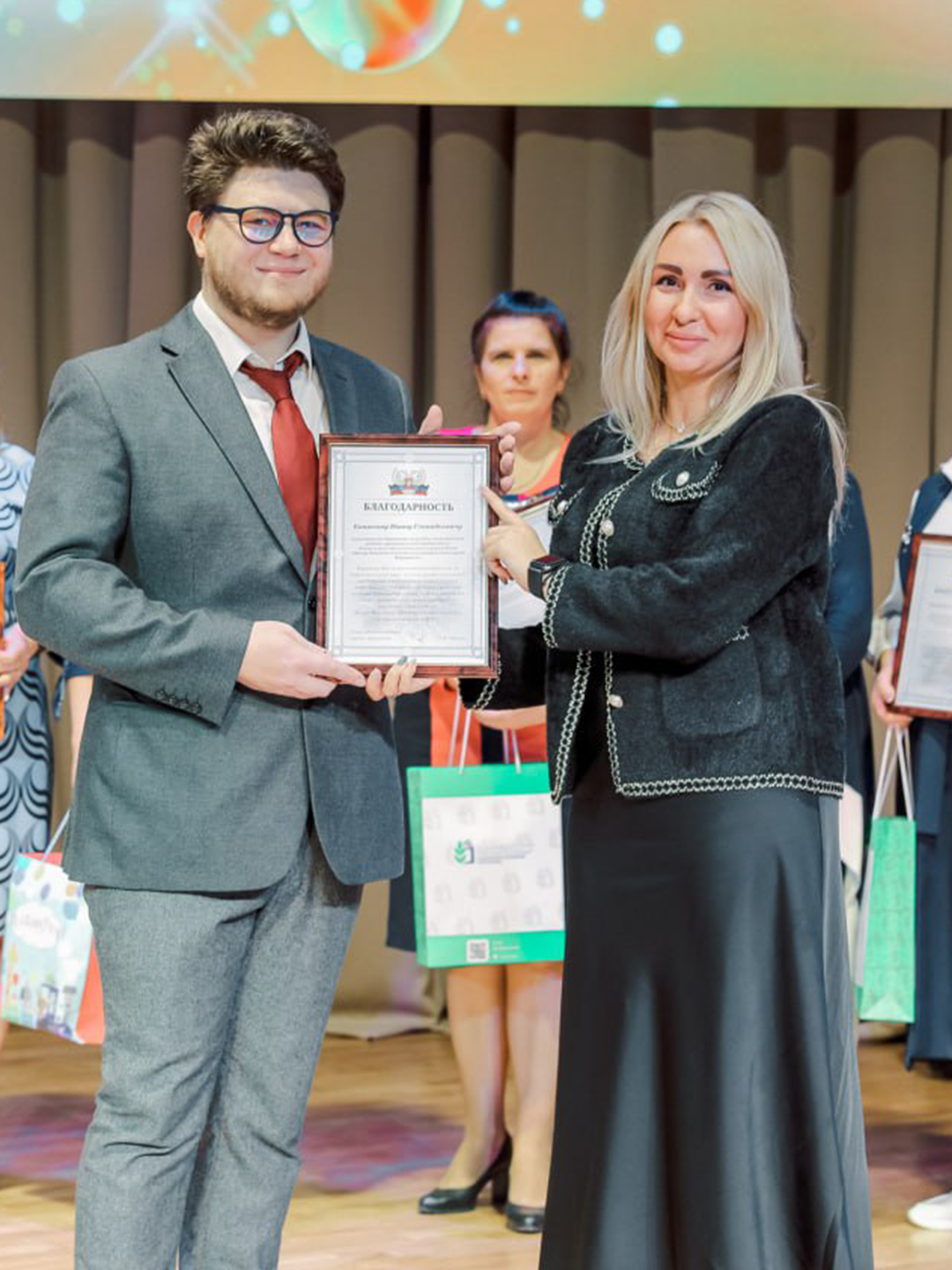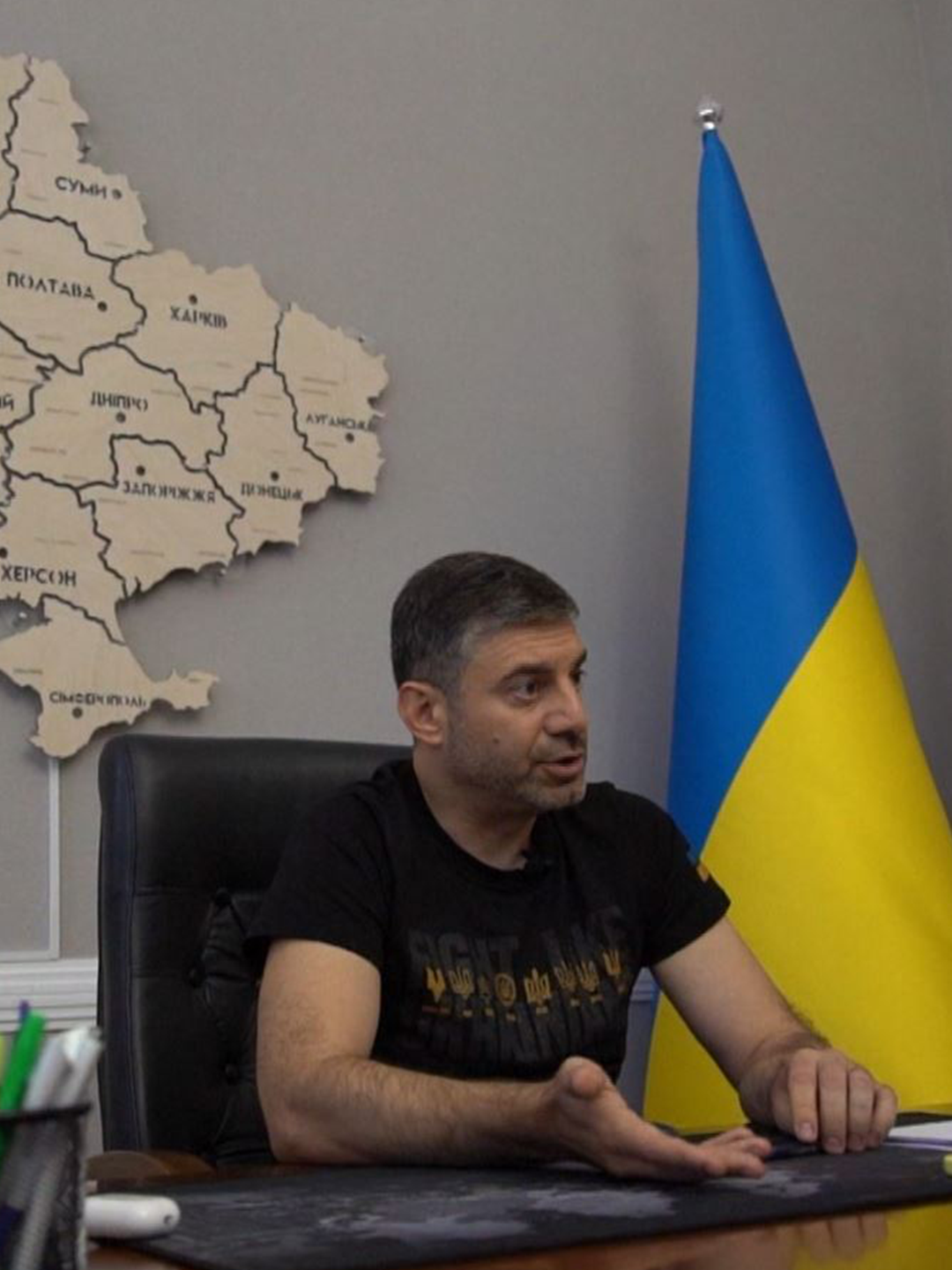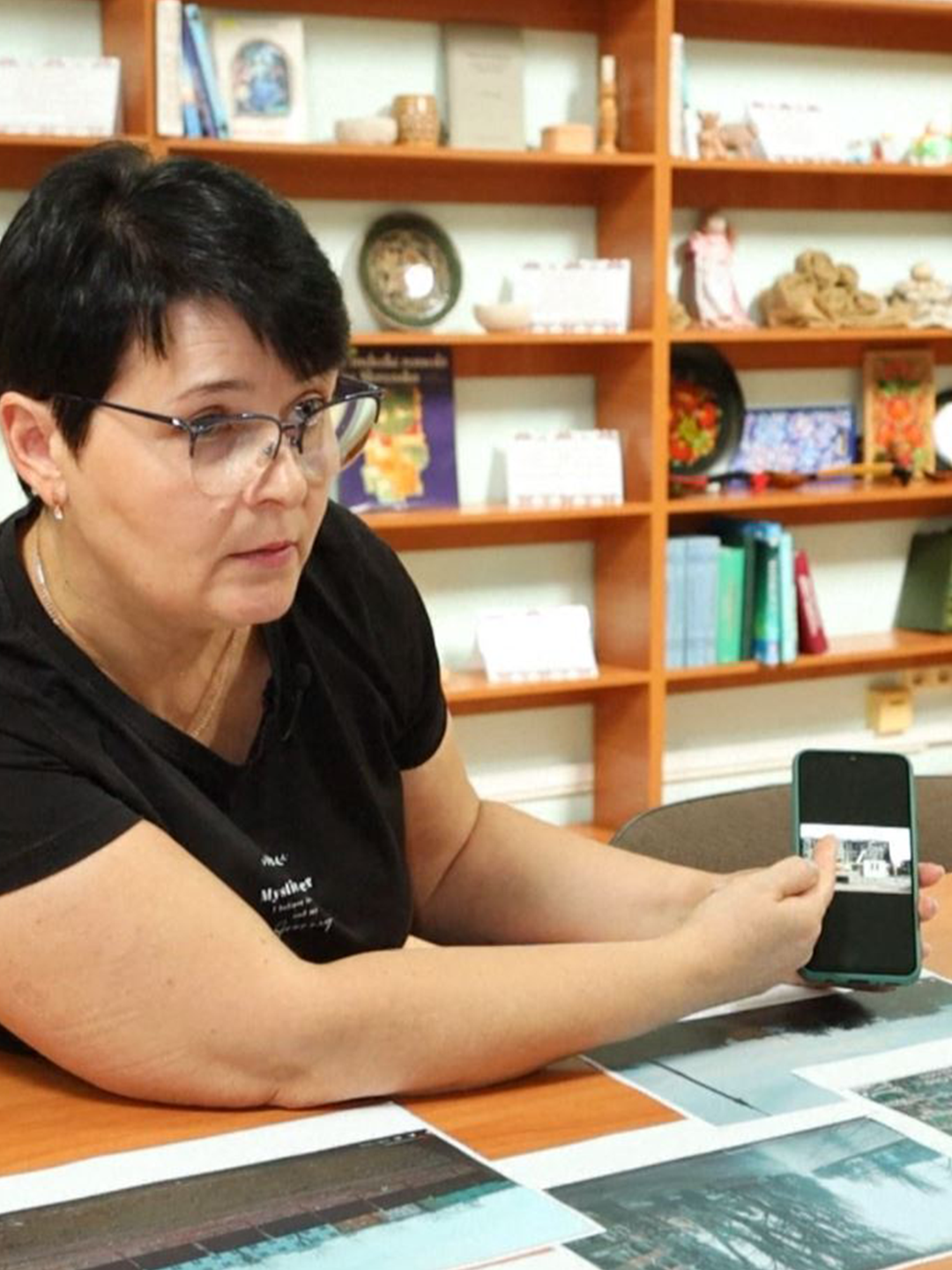Ukraine's legal dilemma
Coerced or collaborator? Kyiv law probes
Russian-occupied Ukraine
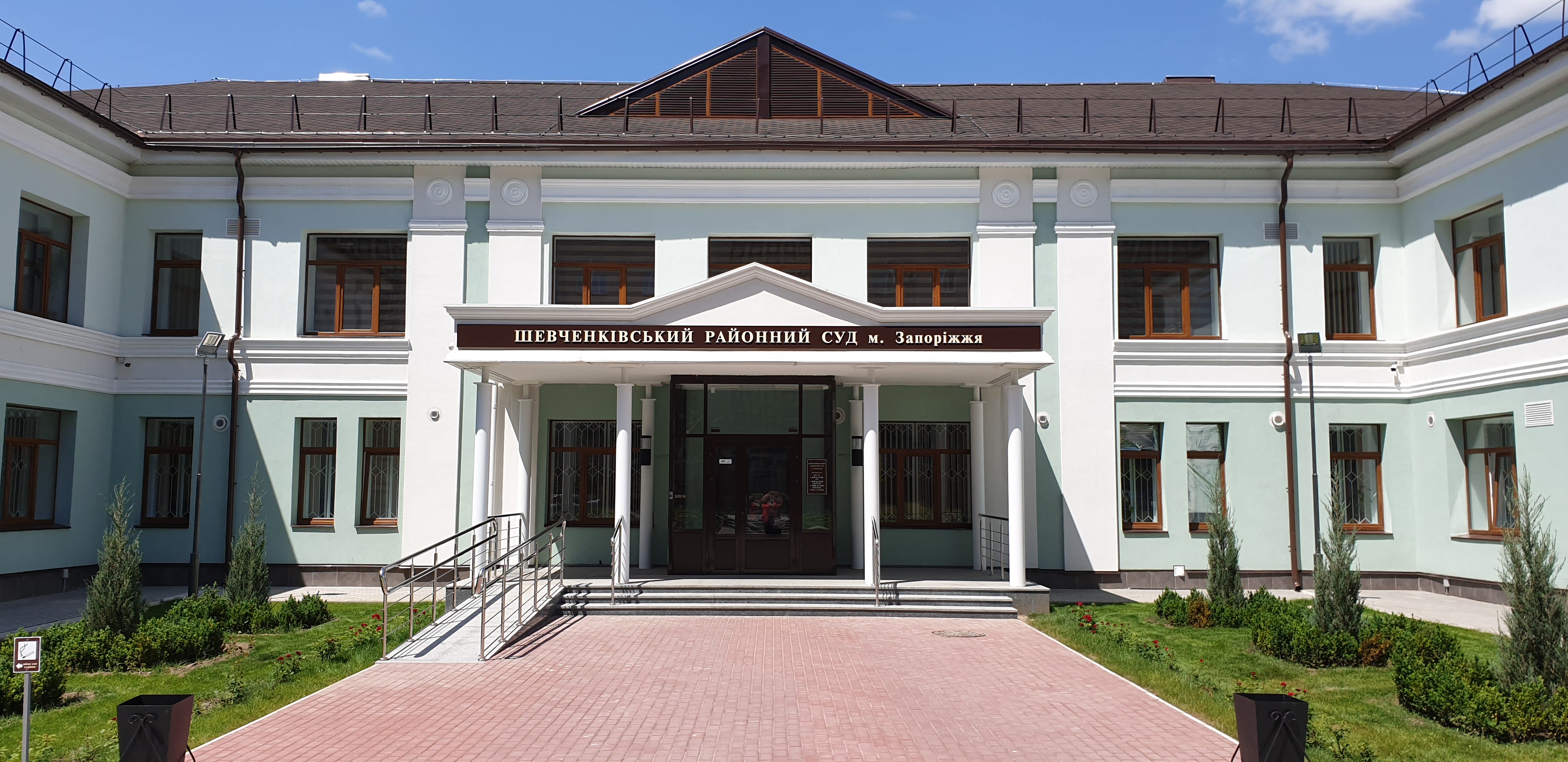
In a small legal office in the Ukrainian town of Zaporizhzhia, Antonina Shostak rustles heaps of papers and checks her phone one more time. She’s a short blonde woman with a stern look, a lawyer who has taken on the unpopular task of defending citizens accused by Ukrainian prosecutors of collaboration with the declared enemy of her country, the occupying Russian forces and authorities.
As a public defender, she is appointed by the Ukrainian state to offer legal advice to people who are charged and brought to court under Articles 111-1 and 111-2 of the Criminal Code of Ukraine. These are the laws that regulate cases of "collaboration" and "abetting the aggressor state", statutes which were hurriedly passed by the Ukrainian parliament less than a month after the Russian invasion. She says the text of this law is “imperfect”, and doesn’t take into account that some people in the occupied territories may be acting under duress. “In my opinion, there are certain gaps in the Criminal Code of Ukraine, because there is no clear delineation of the elements of the crime”, she says. “We have a lot of criminal cases in which law enforcement officers do not take into account different cases, such as when a person is forced to take certain actions under physical and psychological pressure, which excludes his or her criminal liability”.
More than 7600 people have been accused of collaboration between the first day of the invasion on 24 February 2022 and late September 2023, according to figures provided by the Security Service of Ukraine (SSU) to the Ukrainian NGO Zmina. Some are accused of providing information on military objectives to the Russian military, participating in actions of repression or “glorifying the enemy” on messages posted on social networks.
But people can also be charged for working as a garbage collector in the occupied territories or selling food to Russian troops, according to the non-profit Open Democracy. Opening a company account in a Russian bank or paying taxes to the occupying administration, in areas where the Ruble is the only working currency, can also be considered as wartime collaboration and assistance to the aggressor state. These are considered to be economic activities “in close cooperation with and transfer of material resources to the occupying power”. Of 691 verdicts studied by the Ukrainian NGO Zmina until September 2023, only two were acquittals, according to them.
Aside from the lack of definition in the law, Shostak is encountering more practical issues when she tries to build a defence case for her clients. Most of the accused live in the occupied territories, and while she can obtain the accusatory evidence from the prosecution, she can't reach the accused. “So in fact, I am defending these people blindly”, she says. “Perhaps they were tortured, perhaps they were forced. And I don't have the opportunity to find out, because I'm here in Zaporizhzhia, and they are temporarily there.”
In some cases those accused are not even aware of the cases against them, she says, and are eventually tried in absentia, using special pre-trial investigations and courts. "They are deprived of the opportunity to defend themselves, or provide evidence that they were under pressure. And in my opinion, this is a clear violation of human rights," she says.
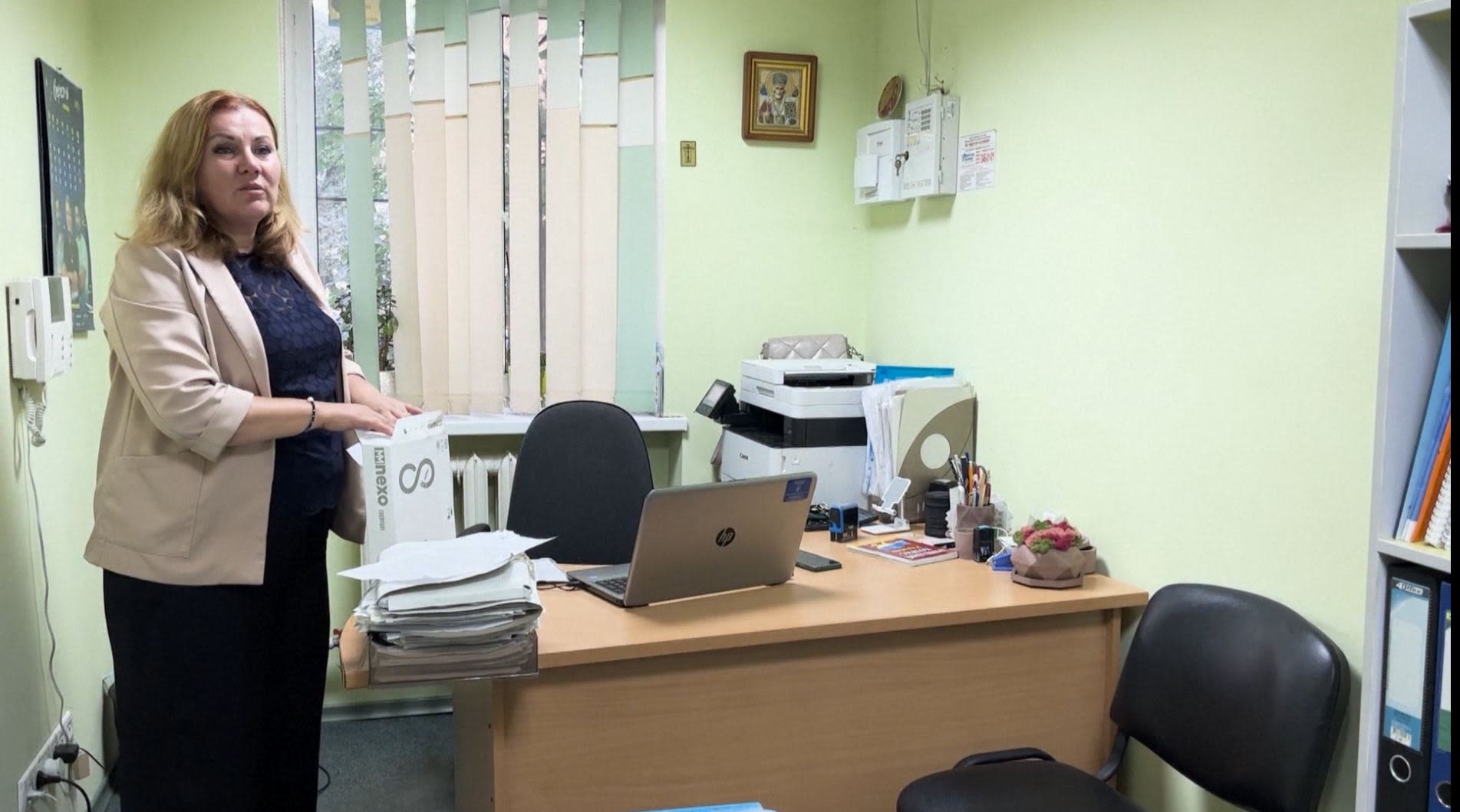
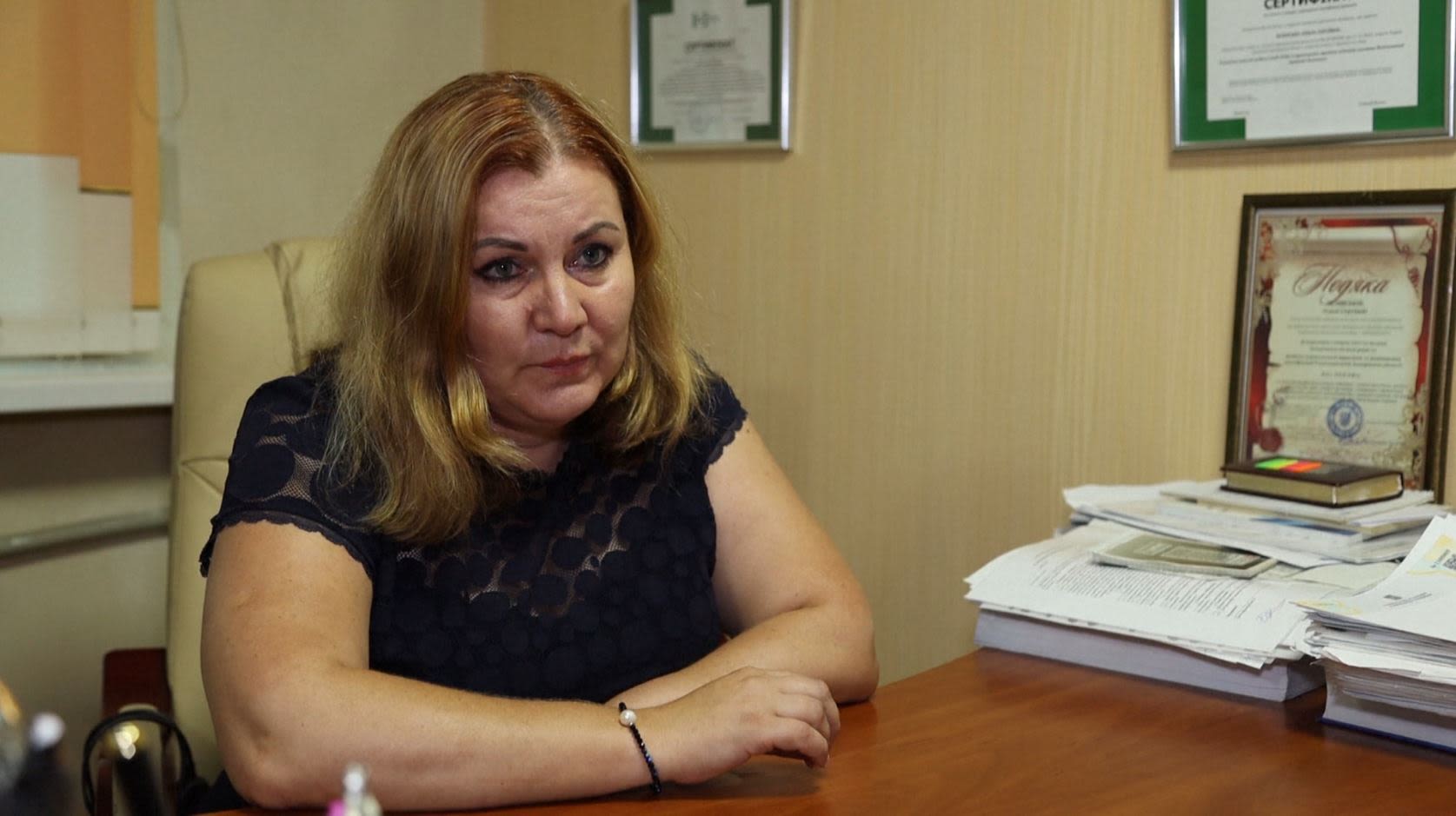

Kateryna Rashevska, a legal expert at the Ukrainian Regional Center for Human Rights, agrees that the law could infringe on people’s rights and points out that overzealous prosecution is causing an extra burden for the judicial system in times of war. “The number of open proceedings is huge and our system is overloaded”, she says in her office in Kyiv. “There are 100,000 cases related to war crimes, crimes against humanity and other violations committed during the war by the Russians. But unfortunately, our courts (also) need to hear these cases related to collaborators.”
One of Shostak’s clients, who requested that his name and details be withheld, is a farmer from the Russian-occupied area of Zaporizhzhia, who was also active in his district administration and local politics. He was arrested by Ukrainian authorities at a checkpoint when he left occupied territory to go to a hospital to have heart bypass surgery.
“They called me a collaborator and locked me up in prison, in solitary confinement”, he says.
He was initially accused of assisting Russian troops “in the conduct of hostilities”, but a plea bargain was negotiated by Shostak and the prosecution. His charges were changed to providing Russian troops with “food, temporary facilities and fuel”, and he was released in February 2023 after seven months in custody and a fine of 17,000 Hryvnias, plus the confiscation of all his assets.
He pleaded guilty to a lesser charge “because it was the only way he could get out of the conditions of the pre-trial detention centre and preserve his health”, says Shostak, “because if he had continued to fight he would have spent at least five years (in prison). ” The farmer also claims the accusations of collaboration were based on anonymous letters, and politically motivated because of his work in the local administration before the war. “It's down to political issues”, he claims. “It's just that I didn't obey, I didn’t allow stealing”.
Punishments for collaboration crimes range from a ban on holding certain positions to 15 years imprisonment, plus the possible confiscation of property. A UN report warns of arbitrary detention and excessive sentences on both sides of the war, documenting several cases of civilians detained for their work in distributing humanitarian aid in the Russian-occupied territories.
Shostak confirms she sees cases that do not involve direct cooperation with the Russian army but relate to her clients’ responsibilities in the local administration. “The main concern is if they took the position of head of the village council or if they participated in referendums”, she says.
Kateryna Rashevska, legal adviser at the Regional Center for Human Rights in Kyiv. Photo by EBU
Kateryna Rashevska, legal adviser at the Regional Center for Human Rights in Kyiv. Photo by EBU
Farmer from the Zaporizhzhia region, who wishes to remain anonymous, sentenced for collaboration with the Russian army. Photo courtesy of RSI
Farmer from the Zaporizhzhia region, who wishes to remain anonymous, sentenced for collaboration with the Russian army. Photo courtesy of RSI
Larisa Borova, who is now in Ukrainian-held Odesa, lived under occupation for 15 months. “I did not work. Russians came and offered me a job two times, but I refused”, she says. This meant she didn't have access to Rubles, now official currency in Russian-ruled east Ukraine, and survived on the charity of her neighbours.
But still she couldn’t bring herself to accept a job from the Russian authorities. “I hate them. I lost everything because of them; my husband, my family who left, my house; life became impossible. I wasn't able to force myself to work for them even in my wildest dreams.”
In the occupied territories, people face hard choices not only in terms of how to earn a living, but whether they can access healthcare and education or own property. All basic services require a Russian passport.
“On our street there are people who chose to take the passports. More than half”, says Oksana (pseudonym), who left a Russian-occupied area of Zaporizhzhia this summer. “Lots of people send their children to schools, and these parents have Russian passports. They find employment, work for them in administrations, in the post office, in the new kindergartens. They (the Russian administration) opened the school and our teachers started to work there.”
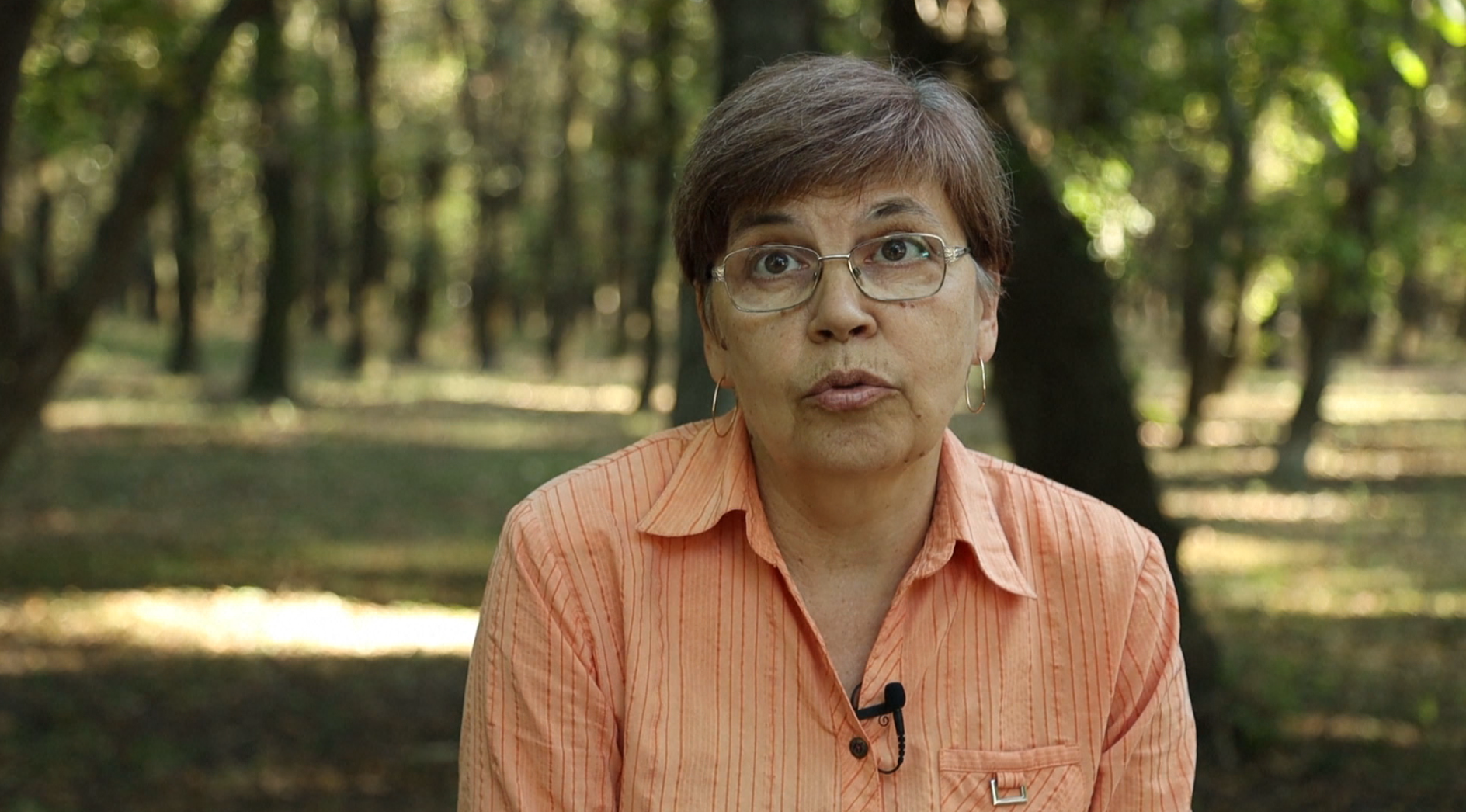
Teachers in Mariupol warded Russian diplomas for their work in October 2023. Photo courtesy of Oleg Morgun
Teachers in Mariupol warded Russian diplomas for their work in October 2023. Photo courtesy of Oleg Morgun
Dmytro Lubinets, Ukrainian Commissioner for Human Rights. Photo by EBU.
Dmytro Lubinets, Ukrainian Commissioner for Human Rights. Photo by EBU.
Viktoria Lisogor, former head of Mariupol's libraries. Photo courtesy of RSI.
Viktoria Lisogor, former head of Mariupol's libraries. Photo courtesy of RSI.
Ukrainian teachers who agree to teach according to the Russian curriculum could also be prosecuted for collaboration. Under Ukrainian law, teachers who engage in Russian propaganda in schools can be sentenced to prison terms.
As of mid-September, 19 cases had been opened against teachers in Ukraine, according to the Ukrainian National Police.
The Ukrainian Parliament Commissioner for Human Rights Dmytro Lubinets says Ukraine will not prosecute those who receive social subsidies or apply for a Russian passport. But he draws the line at anyone working for the new authorities in occupied east Ukraine.
“You have a choice to work for the occupation authorities or go work for someone in the private sector, so there will definitely be a difference there," said Lubinets. "And we can’t show (say) that we will not punish anyone for taking part in establishing an illegal government, thus contributing to the violation of the territorial integrity of the state of Ukraine.”
According to the international law of occupation, where necessary, the occupier is required to administer the occupied territory. In this case a lawful activity under international law could be seen under Kyiv's collaboration law as punishable. It's a legal grey area where the contradictory legislation leaves the people of east Ukraine unprotected and open to criminal charges under Ukrainian law.
In line with its European aspirations Ukraine should comply with international law, but here falls short, says Shostak. “I have not seen any references to the Geneva Conventions in any recent court verdict,” she explains. “We say we are trying to go to Europe, we adhere to European values, but we don't really have a justice system that directly demonstrates this.”
Rashevska points out that without a clear definition of terms, Kyiv’s law on collaboration could even play into Moscow’s narrative. “People in occupied territories are manipulated, very often they are told that after the liberation of these territories by Ukrainians, they will be prosecuted even, for getting some humanitarian aid from Russians,” says Rashevska. “But this is not true.” The government in Kyiv urgently needs to set the record straight so that people living in east Ukraine understand the law and where they stand, says Shostak.
There will need to be a reckoning after the end of the war, says Viktoria, an internally displaced person from Mariupol, a port city in the Donetsk region illegally annexed by Russia in September 2022. Some people welcomed Russian rule, she claims, while others were forced to submit to the occupation. She is sure there will be a process of ‘re-education’ but is adamant that real collaborators should face deportation to Russia. But this is for the future and there is no guarantee that the occupied regions will be returned to Kyiv in the near future.
For now, a climate of fear and uncertainty persists for people in the annexed regions. Everyone living under Russian authorities in east Ukraine risks being labelled as a traitor, says the farmer, even if they leave occupied territory in the future. “Today I am an enemy for my country, “ he claims, bitterly. “All those who stayed under occupation will be guilty. Everyone will be declared a collaborator. They will say: 'Why did you stay? Why didn't you leave?'"

